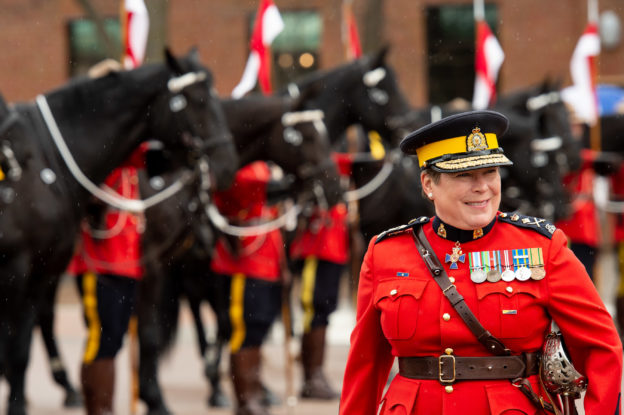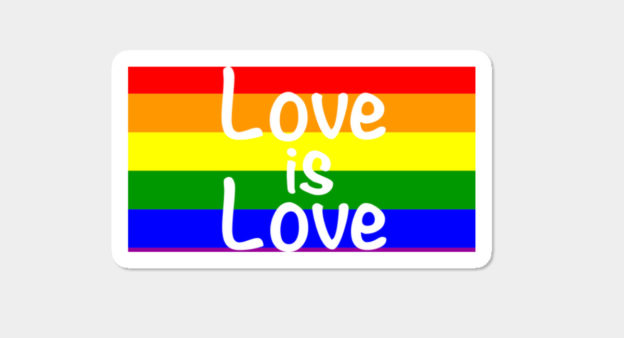For something to be systemic, it needs to be “in the system”, not just in individuals who happen to be in the system, but are also parts of other systems.
Simple example: I am a husband and a father. My wife and I are one system, and my kids and I are another system.
If I’m a pushover with my wife, and a disciplinarian with my kids, then those behaviours are part of the system because as an individual, I change my behaviour depending on the system I’m participating in. In other words, there is something in the system that changes my behaviour independent of my identity or self-concept, my beliefs or my desires.
On the other hand, if I’m a disciplinarian in all situations, particularly if there are explicit agreements I have made to be flexible and lenient, then my behaviour is part of me and not part of the systems I am in. In other words, if my actions do not align with the explicit policies or agreements of the system, then my actions are not systemic.
SO…
In the case of the RCMP, I suspect all the rules and procedures (the explicit text) are designed to be neutral… to not take race into account. That means the real question is what behaviours are exhibited by members of the RCMP which are racist and only demonstrated when those people are in the RCMP system (not in other parts of their lives).
“if systemic racism is meaning that racism is entrenched in our policies and procedures, I would say that we don’t have systemic racism.”
RCMP Commissioner Brenda Lucki
However, to know if the rules and procedures are devoid of systemic racism is not something one can quickly determine unless the rules and procedures are very simple. Here is another example…
Suppose I have a rule in my house that the kids’ bedtimes are determined by their age – the older they get, the later the bedtime is. This is a simple rule, and it is easy to see that it doesn’t single out any subset of my children. There is no obvious injustice. Right?
Well, let’s examine the situation a little closer. Suppose, after medical assessment, we discover that one of my children has Short Sleeper Syndrome (SSS)… in fact, the youngest child. We now have a slightly more complicated situation… but probably easily resolved: there is no set amount of sleep required so the kids can wake up as early as they like.
Next, let’s suppose we introduce a new additional rule: everyone must wake up when the first person wakes up. Now we have a system that causes a change in behaviours to adjust to the new reality. Some of the older kids might choose to go to sleep earlier even than that one with SSS. Still okay, but a little odd and it might cause problems with socializing for the older kids. Still, socializing in the evenings is optional right?
Well, actually, now we have two rules and a consequence of those rules: the older kids cannot develop a social life. This is a systemic injustice, but it is not explicit injustice. In other words, we didn’t create a rule that singles out the older kids for unfair treatment. Instead, we have a combination of rules and characteristics of people in the system that creates injustice.
So, I think that RCMP Commissioner Lucki may not be aware of the systemic racism in the RCMP. There may indeed be a set of rules and procedures (including the laws of the land and internal policies) which conspire to create systemic racism.
How do we find out? Well, the way to start is to look at data. Then do a root cause analysis. (FWIW, this is the kind of thing I do as a consultant with businesses.)
Unfortunately, there is one further complication to the story: falsifiability.
It is extremely hard, and often impossible, to falsify an accusation about a system. Most systems are complex… which is beyond complicated… and determining cause and effect relationships is difficult.
The accusation of systemic racism against a specific organization such as the RCMP is not falsifiable. Why? Start by asking this question: “what would it take to prove that the RCMP has no vestige of systemic racism left in it?” How would you prove such a thing? What evidence and reasoning would it take? What experiments or measurements would you need to do? If you analyze every single piece of data, every rule, policy, procedure and law… can you be certain that systemic racism is not there?
Does this problem matter? Well, yes.
Until there is a falsifiable definition of systemic racism, applicable to specific systems such as the RCMP, then it is also unjust to take any action for or against the organization on the basis of a claim of systemic racism.
What can we do? Well, for one thing, we need that falsifiable definition of systemic racism. I admit… for this article, I did a quick few Google searches and couldn’t find anything that meets my mathematically-minded standard… but I’m not an academic specializing in racism (sociology, presumably). It might exist somewhere…


